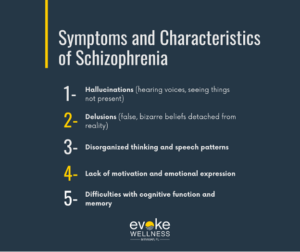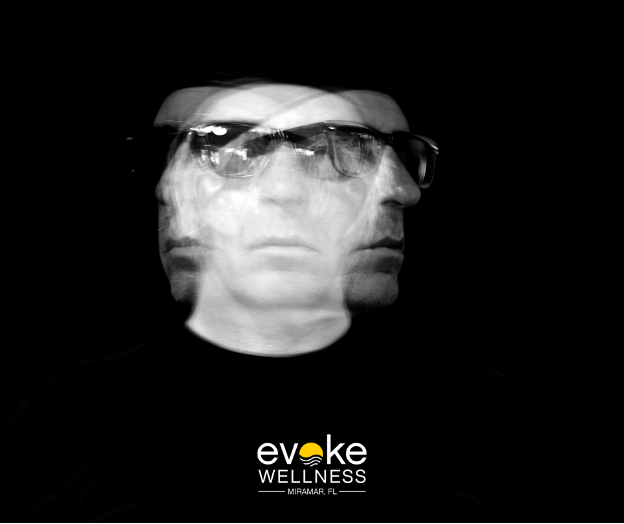As someone interested in the intersection of mental health and substance use, you likely have questions about the relationship between schizophrenia and drug or alcohol addiction. Recent studies indicate that over 50% of people with schizophrenia also struggle with addiction. Understanding this connection is critical, since dual diagnosis cases are complex and require integrated treatment. With proper care, recovery is possible. In this article, learn key facts about schizophrenia, addiction, and their frequent co-occurrence. Discover symptoms, statistics, causes, and treatments, including prescription drug addiction services, polysubstance addiction programs, dual diagnosis therapy, and more. Whether supporting a loved one or exploring options for yourself, use this guide to gain knowledge that empowers your next steps.
Together, let’s embrace the journey to recovery and the promise of a new beginning. Call us at (833) 819-6066 today or reach out online.
What Is Schizophrenia?
Schizophrenia is a chronic, severe mental disorder that causes disruptions in thought processes, perception, and emotional responsiveness. It profoundly impacts an individual’s ability to think clearly, manage emotions, make decisions, and relate to others. According to the National Institute of Mental Health, around 0.25% to 0.64% of the U.S. population is affected by schizophrenia.

Onset & Risk Factors
The disorder often emerges in early adulthood, typically between ages 16-30. While its exact causes are unknown, both genetic and environmental factors play a role. Substance abuse can trigger schizophrenia symptoms or make existing symptoms worse in those predisposed to the disorder.
Co-Occurring Disorders
Many with schizophrenia also struggle with substance use disorders, known as dual diagnosis. This requires integrated treatment plans addressing both the mental health condition and addiction simultaneously through therapies, medications, and lifestyle changes.
What Is Drug-Induced Schizophrenia?
Substance Abuse Triggers
Drug-induced schizophrenia refers to schizophrenia-like symptoms caused by substance abuse rather than an underlying mental illness. It mimics true schizophrenia with hallucinations, delusions, and disorganized thoughts. Common drugs linked to this condition include cannabis, cocaine, amphetamines, LSD, and other hallucinogens.
Distinguishing Symptoms
The symptoms are nearly identical to schizophrenia – hallucinations, delusions, disorganized speech/behavior, flat affect, and lack of motivation. However, drug-induced psychosis resolves with abstinence, while schizophrenia requires long-term antipsychotic treatment.
Dual Diagnosis Treatment
For drug-induced schizophrenia, seeking dual diagnosis treatment is crucial to address both the substance use disorder and psychotic symptoms. This integrates detox, therapy, medications, and aftercare for the underlying addiction and temporary psychosis. With comprehensive care, full recovery is achievable.
Can Drugs Cause Schizophrenia?
Potential Link Between Drug Use and Psychosis
Research has found associations between substance abuse and an increased risk of developing psychotic disorders like schizophrenia. Certain drugs, such as cannabis, LSD, and amphetamines, have been linked to a higher likelihood of experiencing psychosis or triggering schizophrenia symptoms in vulnerable individuals. Regular cannabis use during adolescence may significantly raise these risks.
Drug-Induced Psychosis and Schizophrenia
While genetics play a role, long-term drug use is considered a potential risk factor for psychotic disorders. Substances like cocaine have also been associated with increased risks of psychotic symptoms. However, more research is still needed to fully understand the relationship between drug use and schizophrenia onset.
Dual Diagnosis: Substance Abuse and Mental Illness
Dual diagnosis refers to co-occurring substance use and mental health disorders like schizophrenia. The causes for dual diagnosis can include genetics, stress, and trauma, which increase susceptibility to both conditions. Chronic substance abuse may reveal underlying mental health issues or contribute to their development over time.
Prescription Drug Abuse and Schizophrenia-Like Symptoms
Even prescription stimulants like Ritalin, when abused long-term, can lead to severe personality changes and symptoms indistinguishable from schizophrenia. This underscores the potential for substance abuse to induce or exacerbate psychotic symptoms in vulnerable individuals.
Symptoms of Drug-Induced Schizophrenia
Perceptual Disturbances
- Hallucinations (hearing voices, seeing things that aren’t real)
- Delusions (false, irrational beliefs)
Cognitive Impairments
- Disorganized thoughts and speech
- Difficulty concentrating
- Memory problems
Behavioral Changes
- Social withdrawal and isolation
- Lack of motivation
- Difficulty expressing emotions
Drug-induced psychosis often mimics schizophrenia’s positive symptoms like hallucinations and delusions. However, the negative symptoms like apathy and lack of emotion are less common. Substance-induced psychotic disorders typically resolve within a month after stopping drug use, unlike schizophrenia. Early intervention is crucial to prevent long-term effects.
Getting Help for Drug-Induced Schizophrenia
Seeking professional help is crucial if you or a loved one is experiencing drug-induced schizophrenia or psychosis. This condition arises when prolonged substance abuse, particularly of drugs like cocaine, methamphetamine, or LSD, triggers symptoms indistinguishable from schizophrenia. According to the National Institute of Health, an integrated treatment approach addressing both the substance use disorder and the mental health condition simultaneously is recommended.
Comprehensive Treatment Programs
Evoke Wellness offers specialized dual diagnosis treatment programs designed to help individuals struggling with drug-induced mental health issues like schizophrenia, along with their substance abuse problems. These programs employ an integrated approach involving:
- Pharmacotherapy (medications) to manage symptoms
- Evidence-based therapies like cognitive behavioral therapy (CBT)
- Residential or outpatient treatment program options
- Individual and group counseling sessions
Tailored Care for Your Needs
Whether you require a residential treatment program for round-the-clock care or an outpatient program for more flexibility, Evoke Wellness provides personalized treatment plans. Their team of mental health professionals and addiction specialists work collaboratively to address the unique challenges posed by dual diagnosis cases.
- Prescription drug addiction treatment
- Polysubstance addiction treatment
- Bipolar disorder treatment program
- Individual therapy program
By seeking help from experienced dual diagnosis treatment centers like Evoke Wellness, you can increase your chances of achieving sobriety while managing the symptoms of drug-induced schizophrenia or psychosis effectively. Long-term abuse of stimulants like Ritalin can mimic schizophrenia, further underscoring the importance of integrated care.
Can You Recover From Drug-Induced Schizophrenia?
Comprehensive Treatment Plan
Recovering from drug-induced schizophrenia requires a comprehensive treatment approach addressing both the substance abuse and mental health aspects. Therapy is key, allowing individuals to understand root causes and develop coping mechanisms. Cognitive Behavioral Therapy (CBT) is an evidence-based technique that helps reframe thoughts and behaviors.
Medication Management
Psychiatric medications play a vital role in managing schizophrenia symptoms like hallucinations and delusions. Depending on the severity, antipsychotics or other medications may be prescribed to restore brain chemistry balance. Proper medication management is crucial during recovery.
Holistic Healing
In addition to clinical treatment, holistic therapies like yoga, meditation, nutritional counseling and exercise foster overall well-being. Mindfulness practices cultivate self-awareness and regulation skills beneficial for schizophrenia management. Creative arts therapy provides an expressive outlet.
Residential Care
For those requiring intensive support, residential treatment programs offer a structured environment ideal for recovering from drug-induced schizophrenia. Evoke Wellness provides comprehensive care through integrated therapies, medication support, and holistic healing – empowering individuals on their recovery journey.
Conclusion
In closing, schizophrenia is a complex disorder with no single cause. However, substance abuse can exacerbate symptoms and lead to poorer outcomes. By understanding the connection between drug use and schizophrenia, you can make informed choices about your health. Should substance use become problematic, professional treatment programs can help you manage both conditions. With proper care, those with co-occurring schizophrenia and addiction can go on to lead fulfilling lives. At facilities like Evoke Wellness at Miramar, customized programs address dual diagnosis treatment, medication management, talk therapy, life skills training, and more. Don’t struggle alone. Support and hope exist. Reach out today to learn about evidence-based treatment options.
Begin Your Journey with Evoke Wellness at Miramar
If you or a loved one is considering treatment, Evoke Wellness at Miramar invites you to contact us. Our compassionate team is ready to answer your questions, discuss your needs, and help you take the first steps toward recovery. In Miramar, you’ll find more than just a treatment program – you’ll discover a community dedicated to your wellness and success. Together, let’s embrace the journey to recovery and the promise of a new beginning. Call us at (833) 819-6066 today or reach out online.


